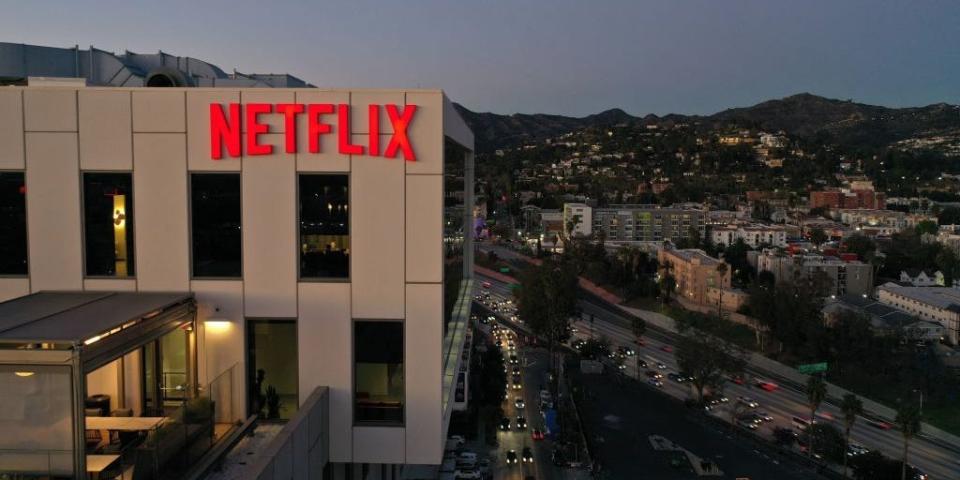Netflix’s valuation jumps $25 billion after the streaming giant’s subscriber numbers beat Wall Street’s expectations

-
Netflix shares jumped 12% Wednesday after a strong earnings report.
-
The streaming giant added a better-than-expected 13 million subscribers over the fourth quarter.
-
Netflix touted the success of titles like “Sex Education” and “The Crown” and announced a new deal to start showing WWE Raw from next year.
Netflix‘s stock price climbed higher at the opening bell Wednesday, after the streaming giant revealed it had added more subscribers than expected over the final three months of 2023.
Shares were up 12% to just under $552 shortly after 9.30 a.m. Eastern Time, as investors reacted to a fourth-quarter earnings report published late Tuesday.
By Business Insider’s calculations, those gains boosted the Big Tech giant’s total market capitalization by $25 billion, to just under $240 billion.
Netflix’s fourth-quarter earnings of $2.11 per share fell narrowly short of what Wall Street was forecasting, per a Refinitiv poll, but its revenue of $8.8 billion surpassed analysts’ forecast.
Subscriber numbers jumped by a better-than-expected 13 million, meaning the streaming platform now has a record 260 million paid members.
In a letter to shareholders, Netflix execs touted the viewing figures for critically-acclaimed titles like “Sex Education” and “The Crown,” new series such as “Beckham,” and licensed titles like “Young Sheldon” and “The Super Mario Bros. Movie.”
The company also announced it had inked a $5 billion, 10-year deal with TKO Group to start showing WWE Raw from 2025.
“It is becoming increasingly clear that Netflix has won the ‘streaming wars’,” Bank of America media analyst Jessica Reif Ehrlich said in a research note ahead of Tuesday’s results. The bank upped its price target for the stock from $525 to $585, implying a 16% gain from current levels.
Before Wednesday, Netflix’s shares were up 1% year-to-date, with investors betting that the Federal Reserve will soon start cutting interest rates but also grappling with the idea that last year’s stunning Big Tech rally might have made parts of the market overvalued.
Read the original article on Business Insider

